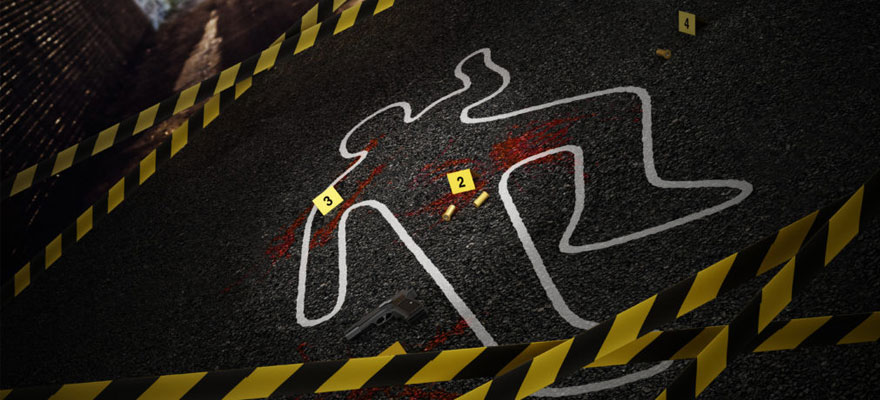
Homicide Lawyers
Homicide is generally defined as: the killing of a human being due to the act or omission of another. Included among homicides are murder and manslaughter, but homicides that lack the requisite criminal intent are generally not crimes. Non-criminal homicides include killing in self-defense, killing in wartime, and the imposition of the death penalty. Other homicides may not be criminal such as fatal accidents involving ordinary negligence, and euthanasia in some places. Suicide is also a homicide, but no prosecution is possible in a successful case.
However, in most cases, homicide is a crime. Homicide crimes are among the most serious crimes and have some of the most severe penalties for those who are convicted. There are normally four general categories of homicides which include Negligent homicide, Manslaughter, Second-degree murder, and First-degree murder.
Four Types of Homicide:
- Negligent Homicide is normally the killing of another person with gross negligence. It often includes death that is the result of the highly unreasonable operation of a motor vehicle, boat or snowmobile. Negligent homicide is often characterized as a death caused by conduct that grossly deviated from the standard of ordinary care. Negligent homicide may be charged as a lesser-included offense of manslaughter or murder. Negligent homicide is also sometimes referred to as “involuntary manslaughter.” State laws vary, so local law should be consulted for specific requirements.
- Manslaughter is the act of killing another human being in a way that is less culpable than murder, but more serious than Negligent homicide because it generally involves recklessness. Recklessness usually involves a conscious disregard of a substantial risk. Examples may include killing a person by firing a gun into the air that results in another person being killed or a fatal car accident involving a highly intoxicated driver. Manslaughter can also result from an intentional killing committed during the heat of passion resulting from adequate provocation. An example of a heat of passion killing could be when a person kills another immediately upon discovering their lover having sexual relations with another person. While not a justified killing, heat of passion can mitigate a murder charge to a manslaughter conviction. In some states, imperfect self-defense can also mitigate a murder to a manslaughter conviction. The specific elements of Manslaughter vary by state.
- Second-Degree Murder is a non-premeditated but intentional killing. Second-degree murder can result from an assault in which the death of the victim was a distinct and strong possibility. Second-degree murder is different from first-degree murder mostly as a result of the time in which the actor took to think about the act of killing before actually committing the act. Second-degree murder can also often result from a killing under circumstances manifesting an extreme indifference to human life. Such conduct generally creates a grave risk of death to another person.
- First-Degree Murder is generally similar to Second-degree murder, but where the actor has sufficient time to deliberate about the act. Such deliberation is often referred to as “premeditation.” Exactly how much time is required to satisfy the deliberation element to elevate a Second-degree murder to First-degree murder varies by state. In many cases, an intentional murder committed after lying in wait for the victim, or by poison or as part of a scheme will often qualify as First-degree murder. Another way to commit First-degree murder is via the felony murder rule. The felony murder rule generally holds that if a person is killed during the commission of, and in furtherance of, the commission of another serious and enumerated felony, the crime is automatically considered a First-degree murder. Examples of crimes that often apply to the felony murder rule include felonies such as rape or other sexual-related crimes, certain drug crimes, kidnapping, burglary, arson, robbery, and certain crimes involving child abuse. Several states have abolished the felony murder rule. First-degree murder varies by state.
Homicide crimes can be difficult to defend, so it is crucial to hire an attorney who has several decades of experience with homicide crimes including jury trial experience in multiple cases. If you have been charged with any type of homicide crime, contact us to schedule a Strategy Session to discuss your case. Do not trust your freedom to just any attorney. We can be reached by calling 480-755-7110 in Arizona.







